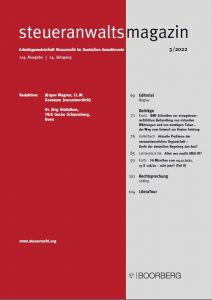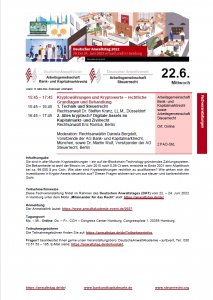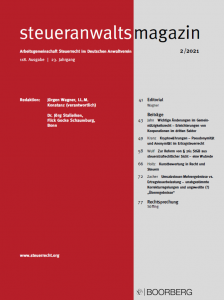About Us
Our Way to Crypto Law
Our firm (www.sp-soeffing.com) is based on the advice on tax-optimized structuring of transactions and assets of investors, entrepreneurs and their enterprises. Founded in 2002 by Dr. Matthias Söffing, S&P SÖFFING has been aligning and continuously developing our advisory services to meet the individual needs and goals of our clients. Starting with the investment in cryptocurrencies, the blockchain / DLT technology and the related opportunities also rapidly evolved relevance for our clients.
This development has led us to develop a special competence in the tax-optimized structuring of Crypto Assets, both in actual and (tax) law terms. We follow the current developments and areas of application of blockchain technology, identify the advantages but also the risks for our clients and design tailor-made concepts.
We advise our clients in all stages and all areas related to crypto investments and transactions, for example when entering the market for the first time, optimizing professionally set up DeFi investments all the way to crypto value-based financing and structuring of the client’s business.
Our services also comprise advice on criminal tax law, a field in which we can provide our clients with extensive expertise from many years of advising on voluntary declarations.
We pursue our clients’ interests with discretion, integrity and professionalism.
We advise on the following Topics
- Transactions on Cryptocurrencies, Utility and Security Tokens
- Decentralized Finance (DeFi) applications
- Succession Planning on Crypto Assets
- Crypto Assets as Business Assets
- Initial Coin Offerings (ICO) / Fundraising
- Transactions on Non-Fungible Tokens (NFT) and Fan Tokens
- Advance Rulings on planned Crypto Transactions
- Supplementary Tax Declaration and Voluntary Self-Disclosures relating to Crypto Transactions
News
Interesting facts, court rulings, publications, events and more on the topic of Crypto Assets
Dr. Steffen Kranz LL.M.
Attorney at Law | Certified Tax Lawyer
As a partner at S&P SÖFFING KRANZ, Steffen is responsible for advice related to Crypto Assets. Prior to joining S&P SÖFFING KRANZ, Steffen worked as a lawyer in tax-focused transaction advisory at an international business law firm and an accounting firm.
Recent publications and lectures:
- Private Investments in Crypto Assets, NWB - Erben und Vermögen, 5/2021.
- Cryptocurrencies - pseudonymity and anonymity in income tax law, SAM 2/2021
- 27th Tax Lawyers' Day 2021 on tax law aspects of transactions with Crypto Assets.





